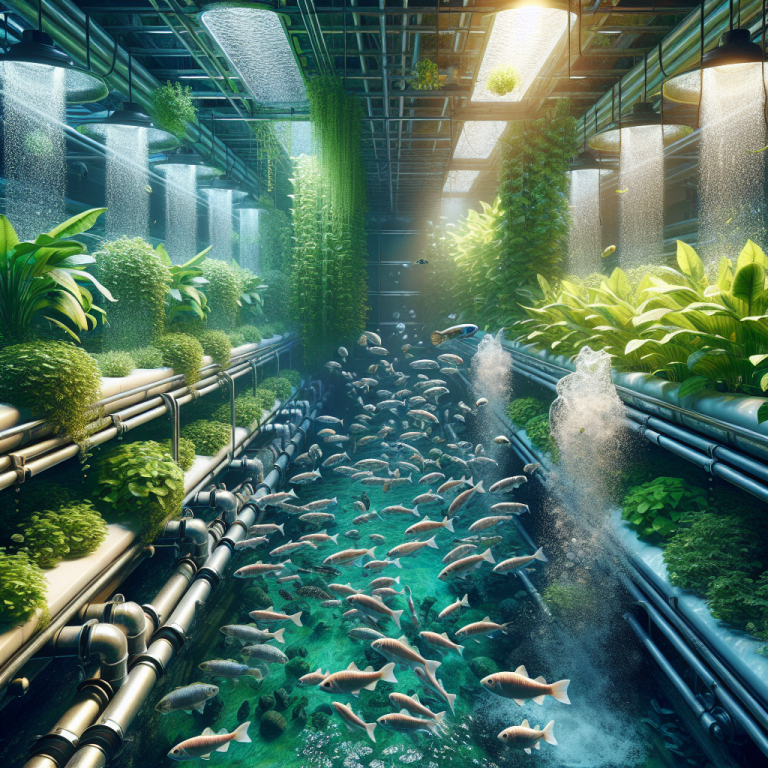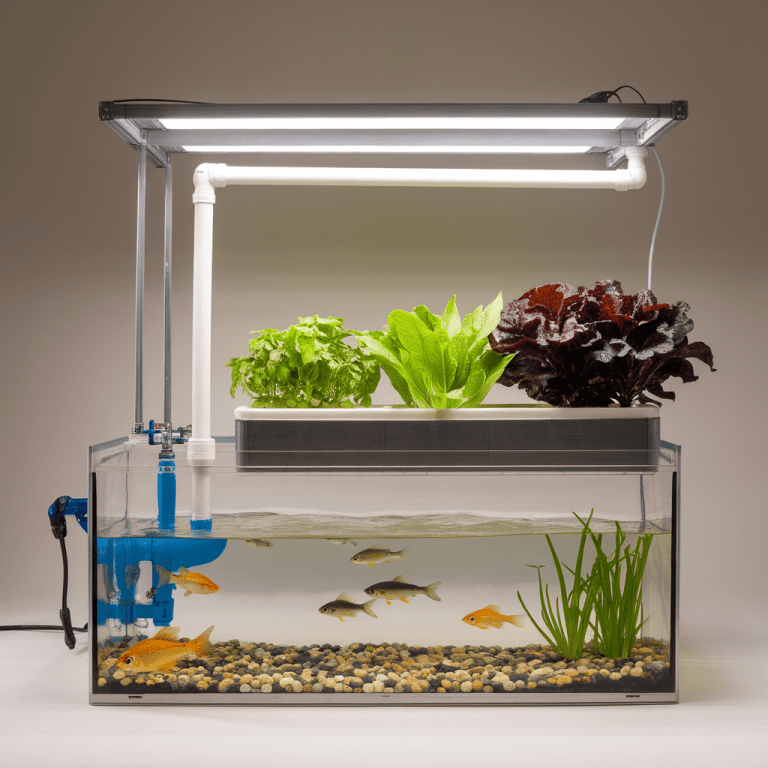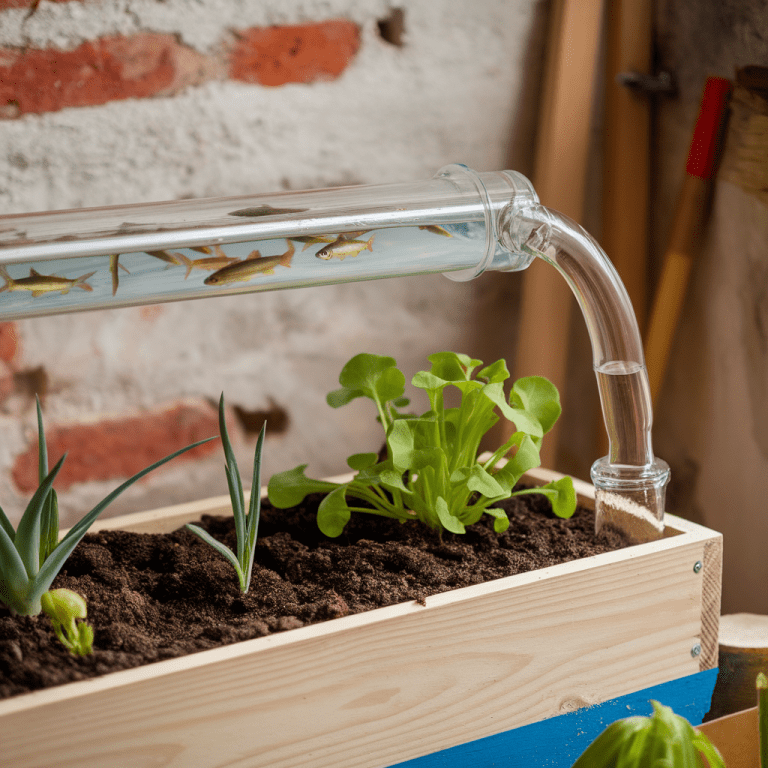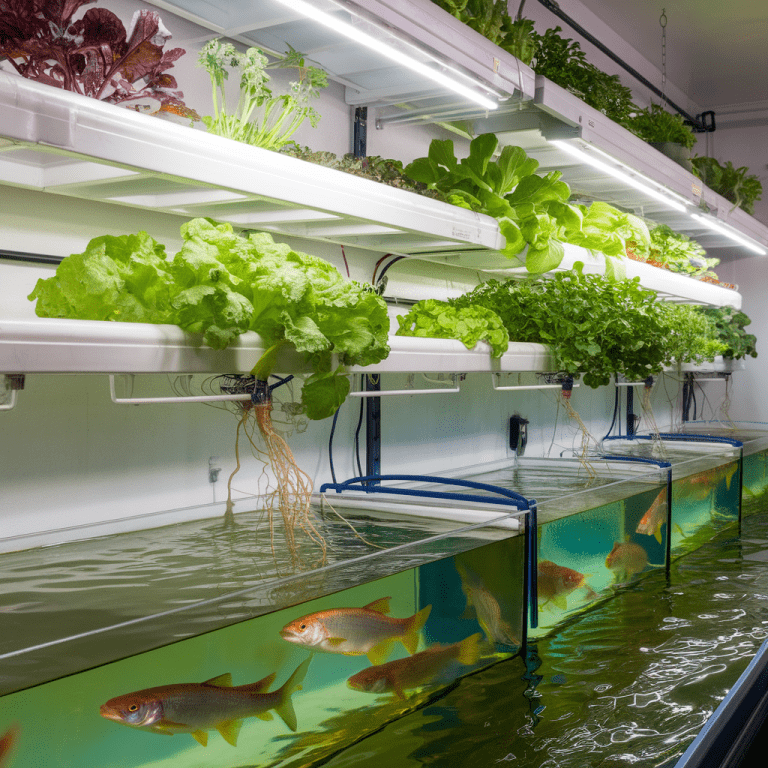Introduction to Aquaponics Regulations and Legal Considerations
Aquaponics regulations and legal considerations are crucial aspects of operating a successful aquaponics system. Picture this: you’ve set up your aquaponics garden, the plants are thriving, and the fish are happily swimming in their tanks. Everything seems idyllic, but have you considered the legal side of things?
Understanding the legal framework surrounding aquaponics is like having a roadmap to navigate potential obstacles and ensure smooth sailing. It’s like being equipped with a secret weapon that keeps you ahead of the game. Regulations may not sound exciting, but trust me, they are your best ally in this green adventure.
Let me share an interesting fact with you – did you know that aquaponics is often considered a sustainable and eco-friendly farming method due to its ability to conserve water and reduce waste? That’s right! By abiding by regulations and legal requirements, you are not only protecting your own interests but also contributing to a greener planet.
Now, let’s delve into the nitty-gritty. From obtaining permits and licenses to ensuring environmental compliance, there are several layers to consider. It’s like solving a puzzle where each piece fits perfectly to create a harmonious picture. Navigating zoning laws, monitoring compliance, and staying updated on health and safety regulations are all part of the aquaponics journey.
But here’s the best part – by embracing these legal considerations, you are not just following rules; you are setting a standard for excellence in aquaponics. Imagine being a trailblazer in the industry, known for your commitment to legality and sustainability. It’s like being a superhero in the world of agriculture, fighting for a better tomorrow.
So, as you embark on your aquaponics adventure, remember that regulations are not roadblocks but stepping stones to success. Embrace them, understand them, and watch your aquaponics dream flourish like never before.
Importance of Understanding Legal Framework
Aquaponics regulations and legal considerations may not sound like the most exciting topic, but trust me, understanding the legal framework is crucial for the success of your aquaponics venture. Picture this: you’ve spent months planning and setting up your aquaponics system, only to find out later that you missed a crucial regulation that puts your entire operation at risk. That’s why diving into the world of aquaponics regulations is essential right from the start.
When it comes to aquaponics, it’s not just about growing plants and raising fish; it’s about navigating a complex web of regulations that govern everything from water usage to waste management. Did you know that different regions may have specific rules regarding aquaponics setups, and failing to comply could lead to hefty fines or even shutdowns? Understanding these regulations can save you a lot of headaches down the road.
Now, let’s talk about the importance of obtaining permits and licenses. It’s not just a formality; it’s a legal requirement that ensures you’re operating within the bounds of the law. Imagine setting up your aquaponics system without the necessary permits, only to have authorities knocking on your door, asking for documentation you don’t have. It’s a situation you definitely want to avoid.
So, here’s a practical tip: before you dive headfirst into aquaponics, take the time to research the regulations in your area. Reach out to local authorities or consult with experts who can guide you through the legal maze. By being proactive and ensuring you’re compliant from the get-go, you’ll set yourself up for a smoother and more successful aquaponics journey.
Remember, aquaponics is not just a hobby; for many, it’s a livelihood. So, understanding and respecting the legal side of things is key to ensuring your passion for aquaponics can thrive without any legal hiccups along the way.
Overview of Key Regulations in Aquaponics
In the world of aquaponics, understanding the key regulations is crucial to successful and compliant operations. Let me take you on a journey through the ins and outs of aquaponics regulations and legal considerations.
Imagine setting up your dream aquaponics system, only to run into roadblocks due to regulatory issues. It can be a nightmare! That’s why diving into the landscape of regulations is essential right from the start.
When it comes to aquaponics regulations, it’s not just about following the rules; it’s about thriving within them. From permits and licenses to environmental compliance and zoning laws, each aspect plays a vital role in shaping the way you approach your aquaponics venture.
Consider this: did you know that different regions may have varying regulations when it comes to aquaponics? It’s like navigating a maze of rules, but once you understand them, you can pave the way for a smoother journey in the aquaponics world.
Now, here’s a practical tip: stay informed and updated on the latest regulations. Laws can change, and being proactive in understanding them can save you from potential headaches down the road.
As you delve deeper into the realm of aquaponics regulations, you might encounter challenges or controversies that spark discussions and debates within the community. How do we balance innovation with compliance? It’s a question worth pondering as we strive to push the boundaries of aquaponics while respecting the legal framework in place.
In the end, mastering aquaponics regulations is not just about following the law; it’s about embracing a culture of responsibility and sustainability. By navigating the regulatory landscape with knowledge and foresight, you can set the stage for a thriving aquaponics journey ahead.
Obtaining Permits and Licenses
When it comes to obtaining permits and licenses for your aquaponics setup, it’s crucial to navigate the regulatory landscape diligently. Picture this: you’re all set to launch your aquaponics venture, buzzing with excitement and ready to dive into the world of sustainable agriculture. But before you can start growing your lush greens and raising your fish, there’s the paperwork – the necessary evil that comes with ensuring you’re on the right side of the law.
Navigating the bureaucratic maze of permits and licenses may seem daunting at first, but trust me, it’s a critical step in setting up your aquaponics system for success. From zoning permits to water rights licenses, each piece of paper plays a crucial role in legitimizing your operation and safeguarding your business for the long haul.
Here’s a nugget of wisdom: think of permits as your official stamp of approval from the powers that be, granting you the green light to transform your aquaponics dreams into reality. Remember, compliance isn’t just about checking boxes – it’s about building a solid foundation for your aquaponics business to thrive and grow sustainably.
So, my fellow aquaponics enthusiasts, embrace the permit process as a rite of passage on your journey towards sustainable farming. Dive into the intricacies of local regulations, seek guidance from experts in the field, and dot your i’s and cross your t’s when it comes to obtaining the necessary permits. It may seem like a bureaucratic hurdle, but in the grand scheme of things, it’s a small price to pay for a flourishing aquaponics venture.
Stay tuned as we delve deeper into the world of aquaponics regulations and legal considerations, uncovering the secrets to navigating the red tape with finesse and ensuring your aquaponics setup is on the path to success. Remember, every permit you secure brings you one step closer to reaping the bountiful rewards of sustainable aquaponics farming.
Environmental Compliance in Aquaponics
Navigating zoning laws and land use regulations in the world of aquaponics can often feel like deciphering a complex puzzle. Picture this: you’ve meticulously set up your aquaponics system, the plants are thriving, and the fish are happily swimming in their aquatic haven. But then comes the daunting task of ensuring that your setup complies with all the zoning laws and land use regulations in your area.
Let me share a practical tip with you. When delving into the realm of zoning laws, it’s crucial to familiarize yourself with the specific regulations that pertain to agriculture and aquaculture activities. Each locality may have its own set of rules dictating where and how aquaponics systems can be established. Some areas may designate certain zones for agricultural purposes, while others may have restrictions on the size or type of structures that can be used for aquaponics.
Understanding these regulations will not only help you avoid potential legal pitfalls but also ensure the sustainability and longevity of your aquaponics venture. By proactively addressing zoning and land use considerations, you can position yourself for success in the long run.
Imagine the sense of accomplishment when you not only grow fresh produce and raise fish sustainably but also do so in full compliance with the law. It’s like solving a challenging puzzle where every piece falls into place, creating a harmonious ecosystem both within your aquaponics setup and within the legal framework.
So, as you embark on your aquaponics journey, remember to embrace the regulations as guidelines to protect the integrity of your operation and contribute positively to the community. By staying informed and proactive, you can cultivate a thriving aquaponics system that not only yields bountiful harvests but also stands the test of legal scrutiny.
Navigating Zoning Laws and Land Use Regulations
Navigating zoning laws and land use regulations in aquaponics can be a bit like solving a puzzle. You have to piece together various rules and restrictions to find the perfect spot for your aquaponics system. It’s like finding the missing piece of a jigsaw puzzle that completes the picture – once you understand the regulations, everything falls into place.
When it comes to setting up your aquaponics system, zoning laws play a crucial role. These laws dictate where certain types of activities, like agriculture, can take place within a given area. So, if you’re planning to set up a commercial aquaponics operation, you need to ensure that your chosen location complies with zoning regulations that permit agricultural activities.
Now, let me share a personal anecdote to illustrate the significance of zoning laws in aquaponics. A friend of mine once embarked on an aquaponics venture without fully understanding the local zoning laws. He set up his system on a piece of land he thought was ideal, only to realize later that it was not zoned for agricultural use. It led to a series of legal challenges and setbacks that could have been easily avoided with proper research and understanding of the zoning regulations.
Understanding the zoning laws and land use regulations in your area is crucial for the success of your aquaponics project. It ensures that you operate within the legal boundaries, avoid potential fines or penalties, and maintain good relationships with your neighbors and local authorities. By taking the time to familiarize yourself with these regulations, you can save yourself a lot of headaches down the road and focus on what truly matters – growing healthy, sustainable produce through aquaponics.
Health and Safety Regulations in Aquaponics
Navigating health and safety regulations in aquaponics can be a critical aspect of ensuring the success and sustainability of your system. It’s like having a strict personal trainer – you may not always like the rules, but they are there to keep you in top shape.
When it comes to health and safety, you need to think about not just the well-being of your plants and fish but also your own. I remember once being so focused on adjusting the pH levels in my aquaponics system that I completely overlooked wearing gloves while handling certain chemicals. Let me tell you, that was a lesson learned the hard way!
To avoid such mishaps, always prioritize safety measures. Wear appropriate protective gear, such as gloves and goggles, when handling chemicals or working with machinery. It may seem like a hassle, but trust me, a little precaution goes a long way in preventing accidents and ensuring a smooth operation. Plus, those gloves can make you feel like a scientist conducting a grand experiment in your own backyard – who wouldn’t want that?
Remember, health and safety regulations are not just about following rules; they are about creating a secure environment for yourself and those around you. By incorporating safety practices into your routine, you not only protect yourself but also contribute to the overall sustainability of your aquaponics system. After all, a healthy and safe environment is the foundation for thriving plants and fish.
So, next time you dive into your aquaponics adventure, don’t forget to gear up and approach your system with care and caution. Your aquaponics journey should be one filled with growth and success, not unnecessary risks. Stay safe, stay informed, and watch your aquaponics paradise flourish!
Compliance Monitoring and Reporting
**Compliance Monitoring and Reporting:**
Ah, compliance monitoring and reporting – the essential yet often overlooked aspect of ensuring your aquaponics operation stays on the right side of the law. It’s like keeping track of your plants and fish, but with a legal twist!
Imagine this: you’ve put in all the hard work to set up your aquaponics system, meticulously following regulations and obtaining the necessary permits. Everything seems to be running smoothly, but are you actually meeting the ongoing compliance requirements? That’s where monitoring and reporting come into play.
Tracking key metrics such as water quality, nutrient levels, and environmental impact isn’t just about ticking boxes – it’s about safeguarding the health of your ecosystem and demonstrating your commitment to sustainability. Remember, the authorities aren’t just interested in your setup; they want to see consistent adherence to regulations over time.
So, how do you ensure accurate monitoring and reporting without drowning in paperwork? One practical tip is to establish a regular schedule for data collection and analysis. Set aside dedicated time each week to check your system parameters and document any deviations. This proactive approach not only helps you stay ahead of compliance issues but also allows you to identify trends and make informed decisions for the future.
But here’s the kicker: compliance monitoring doesn’t have to be a chore. Think of it as a way to fine-tune your aquaponics system and optimize its performance. By keeping detailed records and analyzing the data, you might uncover hidden insights that lead to even greater efficiency and productivity.
And here’s a little trivia for you: did you know that proper monitoring and reporting can also help you spot potential problems before they escalate? It’s like having a crystal ball for your aquaponics system – predicting issues before they have a chance to wreak havoc.
So, embrace compliance monitoring and reporting as an integral part of your aquaponics journey. It’s not just about following the rules; it’s about nurturing your ecosystem, fostering sustainability, and setting the gold standard for responsible aquaponics practices.
Common Legal Challenges in Aquaponics
As we delve into the realm of aquaponics regulations and legal considerations, it’s crucial to recognize the common challenges faced by aquaponics enthusiasts and professionals. Picture this: you’ve meticulously set up your aquaponics system, chosen the perfect fish and plants, and everything seems to be flourishing. But suddenly, you’re hit with a legal issue that threatens to disrupt your entire operation.
Navigating the legal landscape in aquaponics can be akin to swimming in uncharted waters. One of the most prevalent challenges is ensuring compliance with health and safety regulations. The health of both your aquatic animals and plants, as well as your own well-being, must be safeguarded to maintain a harmonious aquaponics ecosystem.
To stay on the right side of the law, it’s essential to prioritize safety measures such as regular system maintenance, proper handling of chemicals, and adherence to hygiene protocols. These not only promote a healthy environment for your aquaponics setup but also demonstrate your commitment to upholding legal standards.
Consider this scenario: a fellow aquaponics enthusiast overlooked a crucial safety protocol and faced repercussions that halted their operation. By learning from others’ experiences and proactively implementing safety measures, you can safeguard your aquaponics venture from potential legal pitfalls.
So, how can you ensure that your aquaponics system is not only thriving but also compliant with legal requirements? Stay tuned as we uncover practical tips and expert advice to help you navigate the intricate web of aquaponics regulations. Remember, a successful aquaponics journey is not just about growth—it’s also about responsible and informed practices that uphold legal standards.
Conclusion: Best Practices for Legal Compliance
Aquaponics regulations and legal considerations may not sound like the most thrilling topic, but trust me, it’s crucial if you want your aquaponics venture to thrive. Picture this: you’re all set up with your aquaponics system, the plants are flourishing, the fish are happy, everything seems perfect. But wait, have you considered the legal side of things?
Let me share a personal anecdote with you – when I first delved into the world of aquaponics, I was so focused on the technical aspects that I completely overlooked the legal requirements. It wasn’t until I received a notice of violation that I realized the importance of understanding and complying with aquaponics regulations.
Now, here’s the thing: aquaponics regulations aren’t just red tape. They exist to protect the environment, ensure food safety, and maintain sustainability in the industry. Did you know that failing to comply with regulations could not only land you in hot water legally but also harm your reputation and business?
Navigating aquaponics regulations can be tricky, from obtaining the necessary permits and licenses to staying on top of environmental compliance standards. It’s like a puzzle that you need to solve to keep your aquaponics operation running smoothly. But fear not, with the right knowledge and guidance, you can stay on the right side of the law while reaping the benefits of aquaponics.
So, here’s a practical tip for you: before you dive headfirst into aquaponics, take the time to familiarize yourself with the regulations and legal considerations that apply to your area. Reach out to local authorities, seek advice from experts, and don’t be afraid to ask questions. Remember, compliance is key to success in aquaponics.
Now, I leave you with this thought-provoking question: How can you ensure that your aquaponics venture not only thrives but also complies with all the necessary regulations? The answer lies in understanding, respecting, and adhering to the legal framework that governs aquaponics.




